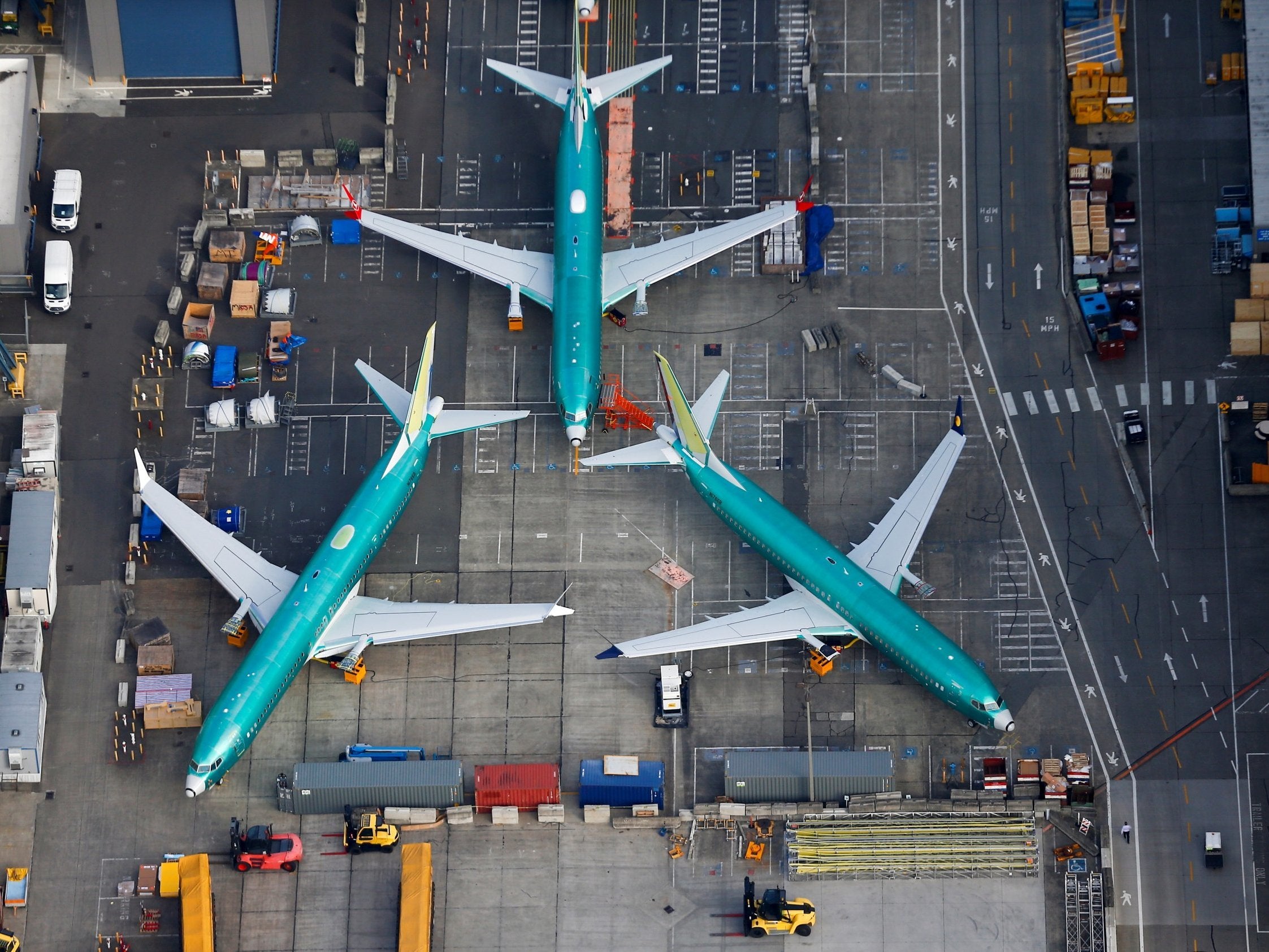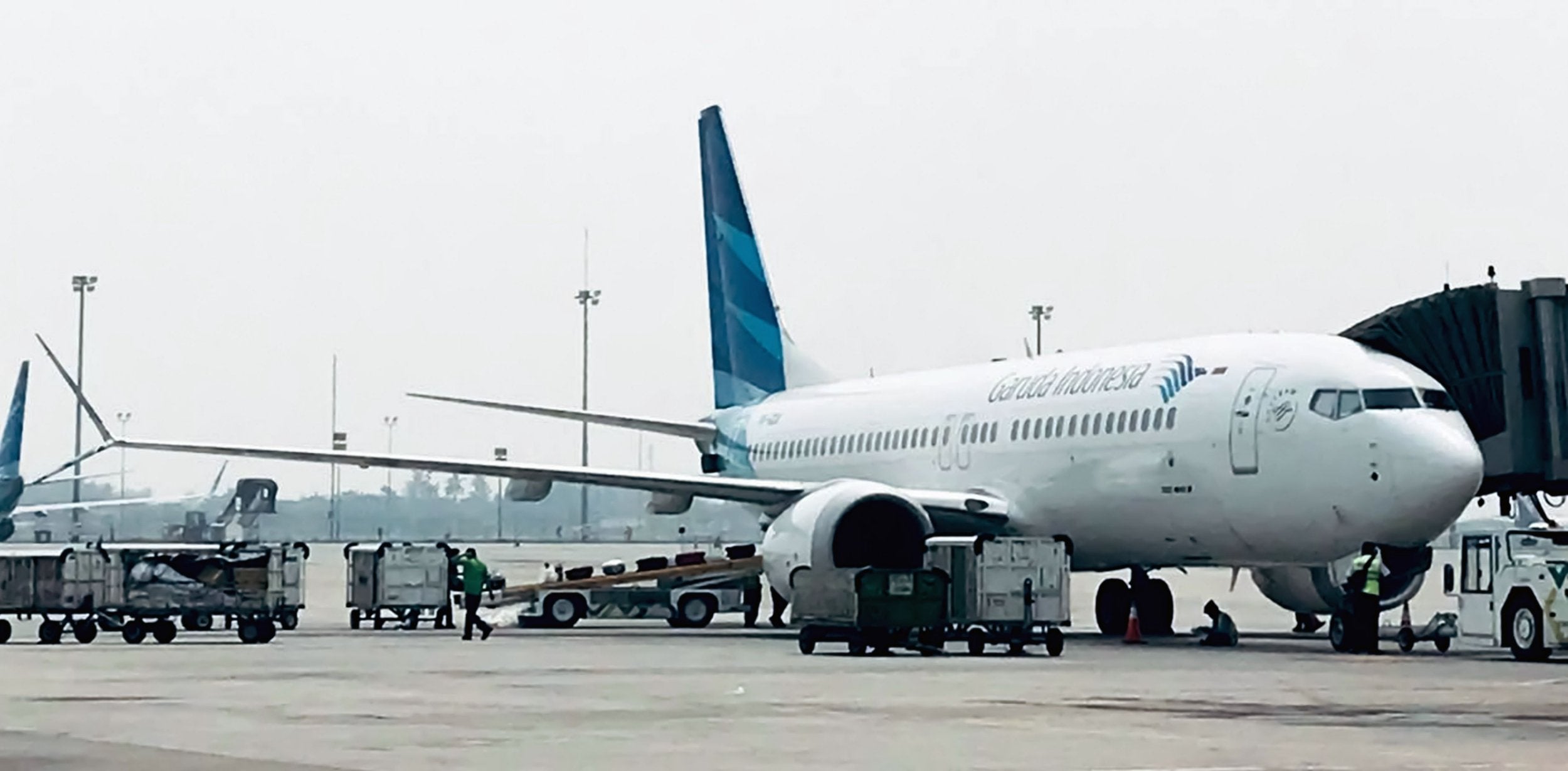Indonesian airline looks to cancel $4.9bn Boeing 737 order after deadly crashes
Doomed jets in Ethiopian Airlines and Lion Air disasters were not fitted with optional safety features, say officials

An Indonesian airline is looking to cancel its multi-billion dollar order for dozens of Boeing 737 Max 8 jets following two deadly crashes involving the model.
Garuda Indonesia, the country’s national carrier, said customers had "lost trust" in the planes following the Lion Air and Ethiopian Airlines disasters, which together killed 346 people.
The airline has written to Boeing asking to scrap an order for the remaining 49 of 50 aircraft it agreed to buy for $4.9bn (£3.7bn) in 2014.
Garuda Indonesia, which has grounded the one Max 8 already in its fleet, is the first to publicly confirm plans to cancel an order for the troubled aircraft. It said it could switch to other Boeing models.
A Boeing spokeswoman said the company would not "comment on discussions with any of our customers".
The Ethiopian Airlines disaster on 10 March, following the Lion Air crash in Indonesia in October, set off one of the widest inquiries in aviation history and has cast a long shadow over the Boeing’s 737 Max model, which had been expected to be a standard for decades but has now been grounded across the world.
While a direct link between the crashes has not been proven, initial investigations show similarities between the two and initial investigations have focused on an automated flight-control system implemented by Boeing two years ago.
The software is designed to prevent a dangerous aerodynamic stall by pitching the plane downwards if it is detected to be tilting up sharply. In the Lion Air crash, the system is believed to have been erroneously activated by a faulty sensor, causing it to plummet to the ground minutes after take-off.

Boeing is to retrofit all 737 Max jets with a previously optional cockpit warning light that might have flagged up problems that could have played a role in the disasters, according to officials at the company.
Airlines previously had to pay extra for the safety feature, and neither Ethiopian Airlines nor Lion Air had taken up the option.
Unidentified officials told Reuters the warning light would be offered as part of a software upgrade to the 737 Max fleet.
Randy Tinseth, Boeing's vice president of commercial marketing, said changes would be made to the control laws of the plane, displays, the flight manual, and training.
It is unclear how long it will take Boeing to refit existing planes with new software or hardware, but experts predicted it could take months. Regulators in Europe and Canada have said they will conduct their own reviews of any new systems.
Since the Ethiopian crash, which killed 149 passengers and eight crew, Boeing shares have fallen 12 per cent and $28bn has been wiped off its market value.

Pressure has mounted on the company from US legislators, who are also expected to question the Federal Aviation Administration. The firm also faces a criminal investigation by the US Justice Department.
Several lawsuits have been filed on behalf of victims of the Lion Air crash, which killed 189 people when the jet plunged into the Java Sea after take-off from Jakarta.
Join our commenting forum
Join thought-provoking conversations, follow other Independent readers and see their replies
Comments
Bookmark popover
Removed from bookmarks